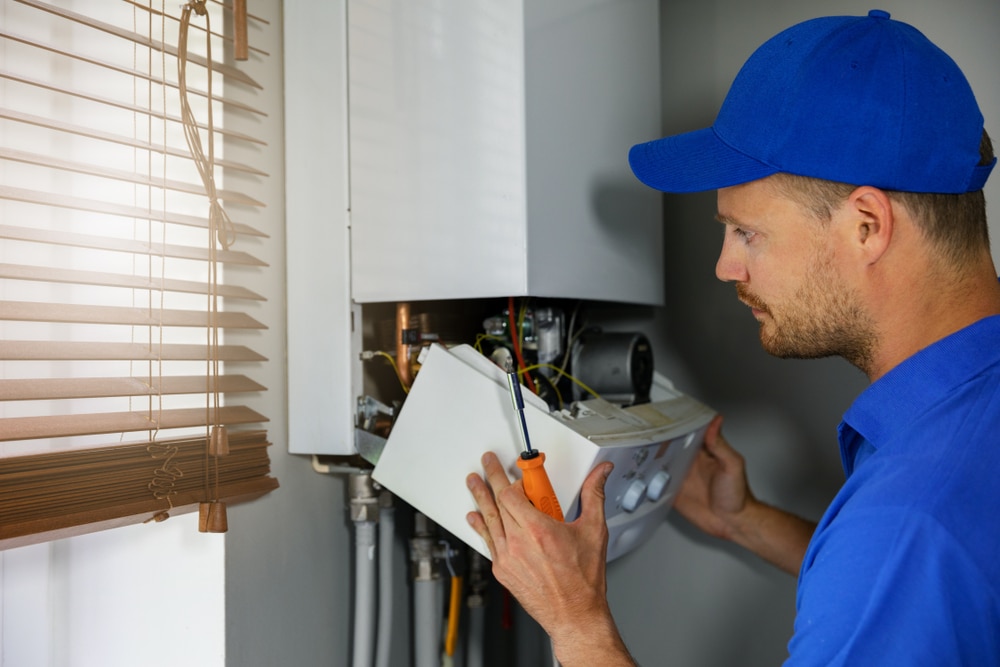Your water heater is an integral component of your home’s plumbing system, providing essential hot water for daily tasks such as showering, washing dishes, and doing laundry. Ensuring your water heater operates efficiently and has a long lifespan is not just a matter of comfort but also a way to save on energy costs and reduce the likelihood of needing repairs or replacements. A well-maintained water heater not only offers consistent hot water but also minimizes the chances of unexpected breakdowns.
At New Pro Plumbing, we understand how crucial proper water heater maintenance is for homeowners and aim to provide practical and straightforward advice on keeping your water heater in top condition. In this article, we will share essential water heater maintenance tips, focusing on optimizing efficiency, preventing common issues, and prolonging the lifespan of your valuable home appliance. By understanding the importance of regular water heater maintenance and implementing the tips provided in this article, you can maintain a comfortable and efficient home while reducing the need for costly repairs or replacements.
If you’re looking to improve the performance of your water heater and maximize its lifespan, read on to learn more about essential water heater maintenance tips and best practices.
Annual Inspections and Maintenance
One of the most effective ways to ensure your water heater operates efficiently and has a long lifespan is to schedule annual inspections and maintenance with a professional plumber. During these appointments, the plumber will:
1. Check for signs of corrosion or leaks that could lead to more significant and costly issues down the line.
2. Examine the pressure relief valve, drain valve, and other crucial components for wear or damage.
3. Flush the water heater tank to remove sediment buildup, which can cause decreased efficiency and hinder optimal performance.
By scheduling regular inspections and maintenance, you can catch potential problems early, preventing expensive repairs or replacements and ensuring the longevity of your water heater.
Adjust the Thermostat
Adjusting your water heater’s thermostat to an optimal temperature is not only a simple way to improve efficiency but can also save you money on your energy bill. The Department of Energy recommends setting your water heater thermostat at 120°F (49°C) for optimal energy savings and preventing scalding. By maintaining an appropriate temperature, you can reduce your water heater’s energy consumption while still enjoying consistent hot water.
Insulate Your Water Heater
Insulating your water heater, especially if it’s located in an unheated space, can help improve its efficiency and prevent heat loss. Insulation jackets or blankets are readily available for both tank and tankless water heaters, making it easy to find an appropriate option for your specific appliance. By insulating your water heater, you can help it retain heat and prevent it from working harder than necessary to maintain the desired temperature.
Check the Anode Rod
The anode rod is an essential component of your water heater that protects the tank from rusting and corrosion. Over time, the anode rod will deteriorate, and once it has worn away, your water heater’s tank becomes susceptible to rust and corrosion. It is recommended to check the anode rod at least once a year and replace it if more than 6 inches of the core steel wire is exposed or the rod is less than half its original diameter. By regularly checking and replacing the anode rod as needed, you can prevent costly damage to your water heater and prolong its lifespan.
Install a Water Softener
If you live in an area with hard water, mineral deposits can accumulate inside your water heater, hindering its efficiency and causing damage over time. Installing a water softener can help prevent this buildup, ensuring your water heater operates efficiently and prolongs its lifespan. Additionally, softening your water can have other benefits for your home, such as preventing scale buildup on faucets and fixtures and improving the efficiency of other water-using appliances.
What to Do If Your Water Heater Isn’t Functioning Properly
If you notice signs that your water heater isn’t functioning at its best, such as inconsistent hot water temperature, unusual noises, or signs of leaking, it’s essential to address these issues promptly. Contact a professional plumber like those at New Pro Plumbing to diagnose the problem and recommend appropriate steps to restore your water heater’s efficiency and performance.
Conclusion
Proper water heater maintenance is crucial for optimizing efficiency and prolonging the lifespan of your home’s essential appliance. By following the tips provided in this article, such as scheduling annual inspections and maintenance, adjusting the thermostat, insulating your water heater, checking the anode rod, and installing a water softener, you can ensure your water heater operates effectively while minimizing the need for costly repairs or replacements.
Trust New Pro Plumbing for expert water heater maintenance, repair, or installation services. We provide personalized and affordable plumbing solutions in Los Angeles and the surrounding areas, delivering reliable and effective service to keep your home’s plumbing system running smoothly. Contact us today.

















